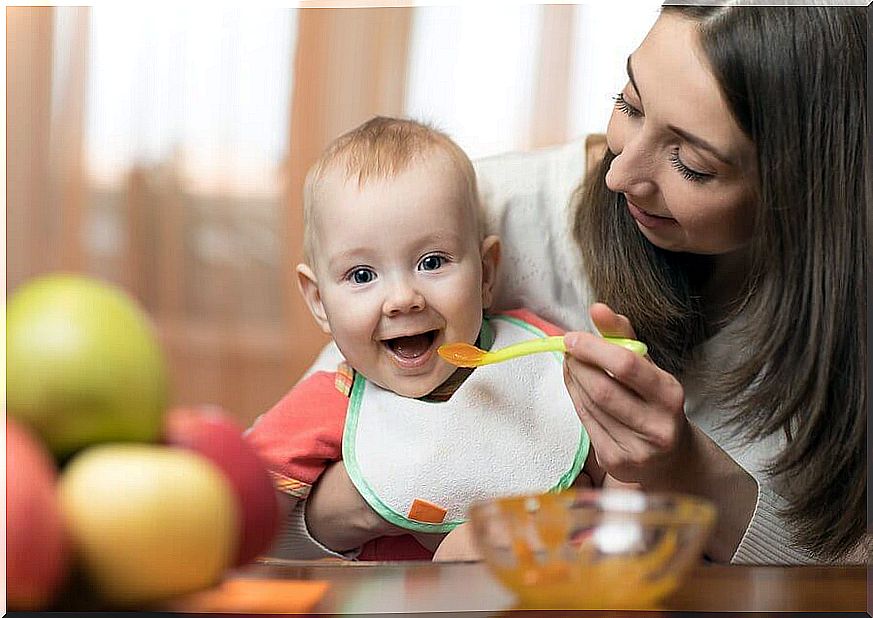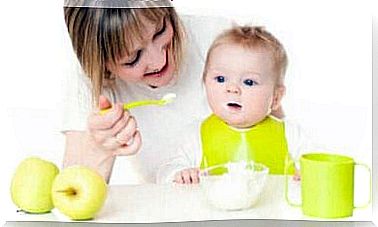Baby Food: How To Introduce Your Baby To New Tastes

Baby food will not always get a good reception from babies the first few months of their lives. The first pureed foods in your baby’s diet are fundamental to its growth. When the baby is 6 months old, it is necessary to introduce baby food to its diet so that the baby can begin to get used to new tastes and textures. This way you can “train” the baby’s digestive system a bit at a time.
Now it is necessary to know what foods to introduce with these purees. In general, we may think that any soft fruit, such as bananas, is sufficient. But in reality, bananas are not a good first option. Before introducing bananas, other fruits rich in fiber must be included.
Techniques for introducing baby food
When your baby tastes his first food, the baby’s movements and expressions may show that the baby feels a little strange. This is a normal reaction because the food has a texture that is different from what the baby has experienced at its young age. Therefore, it is important for parents to be patient and keep trying.
Set a schedule to feed your baby baby food
It is important for your baby to start eating his first food around the same time so that the baby’s body gets used to a schedule. That way you can avoid overfeeding the baby. Remember that it is not good for your baby to eat all the time.
Create a calm environment so your baby is more receptive to baby food
Since baby food is something completely strange and new for your little one, it is important for the baby to be in a comfortable and calm environment. Ideally, there should be no distractions around and preferably very little noise. At first, it will be difficult for the baby to sit alone in the chair, so do not force the baby to do so. The baby can also sit and eat on your lap.
Replace feeding with one bottle of baby food to accustom the baby to the new taste
To introduce baby food into your baby’s diet , it is important not to cut out bottle feeding completely. Keep in mind that this may be sudden for the baby. It is best to replace bottle feeding with baby food one bottle at a time.
If the baby is being fed from a bottle at noon, replace this feeding with baby food. If the baby has eaten enough, it is not necessary to breastfeed or bottle-feed. If the baby hardly ate the baby food, then it becomes necessary to do so.
Be persistent, but do not force the baby
The amount of baby food should be small and you should be patient when feeding your baby. Many times parents think that because their baby ate all the food that it will be satisfied.
While it is ideal for the baby to eat his food up, there is no need to force the baby to eat too much. If you insist too much on overfeeding the baby, you may cause your baby to retreat, which will make it harder to feed the baby in the future.
Advice on when to introduce baby food
While babies may reject their first taste of pureed food, that does not mean they do not like it at all. They might reject it because it’s a brand new food, or it might feel a little weird. The key is to create a consistent routine to get their body used to receiving the food.
Here are some tips that parents should take into account:
- Do not sweeten the puree or add salt
- The food should be cut into very small pieces to prevent the baby from being suffocated
- The temperature of the food must be warm
- The texture of the puree should not be too liquid or too thick
- If the baby turns its head when you offer that food, it may be an indication that the baby is full and does not want more.
- Once the baby has eaten some food and is hungry, complete the baby’s meal with bottle feeding.
- After eating, the baby may be thirsty. Give the baby some water.
- Some babies start eating well after the age of 8 months, so parents should be persistent.
Which foods should you introduce first?
Before introducing baby food, it is important to consult your pediatrician. This pediatrician will be responsible for specifying exactly which foods to integrate into the baby’s diet first. But basically, these are some of the most recommended:
- Cereals : Oats, rice, corn, soybeans, tapioca
- Vegetables : Potatoes, carrots, sweet potatoes, pumpkin, leeks, lettuce, zucchini
- Fruits : Oranges, plums, peaches, apples, pears and bananas
The fruit should be natural or cooked like a compote so that it does not lose all the properties that the baby needs.
Feeding babies is very important because their growth depends largely on the nutrients their body receives. Fortunately, it is very easy to introduce a variety of foods when we know what is best.









